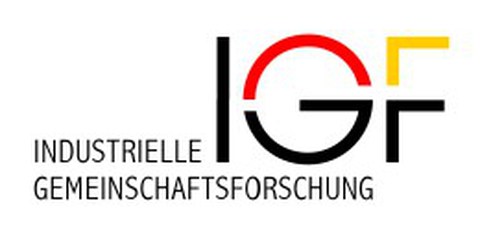01.07.2023
3DCell
3DCell - Verpackungen aus dreidimensional geformten Cellulose-Composites
| Laufzeit | 07/2023 – 12/2025 |
| Finanzierung | BMWK | AIF IGF |
| Förderkennzeichen | 01IF23012N |
| Kontakt | |
| Schlagworte | Extruder, Naturfasern, Tiefziehen, Verpackungen, nachhaltige Verpackungen, Cellulose-Composites |
Ziel
Ziel des Projekts „3D-Cell“ ist die Entwicklung und Herstellung umweltfreundlicher, recyclingfähiger Verpackungslösungen auf Basis von Cellulose-Composites. Dabei sollen Verpackungen entstehen, die sowohl den ökologischen Anforderungen aktueller Gesetzgebungen gerecht werden als auch wirtschaftlich attraktiv für die Industrie – insbesondere KMU – sind.
Konkret soll eine prozesssichere Fertigung von Verpackungsmitteln mit optimierten Eigenschaften ermöglicht werden. Dies wird erreicht durch die Entwicklung geeigneter Materialien und Materialkombinationen sowie durch die Anwendung und Weiterentwicklung von Fügetechniken, maschinellem Tiefziehen und Beschichtungsverfahren. Das Projekt verfolgt dabei einen ganzheitlichen Ansatz, der die gesamte Wertschöpfungskette abbildet: von der Auswahl und Aufbereitung der Faserrohstoffe über die Materialentwicklung und -prüfung bis hin zur Gestaltung belastungsgerechter Verpackungslösungen. Ein besonderer Fokus liegt dabei auf der Verwendung von Naturfasern und deren Aufbereitung im Extruder.
Ein weiteres Ziel ist die Entwicklung von Demonstratoren für tiefgezogene 3D-Verpackungen, welche die Machbarkeit der Konzepte in der Praxis zeigen. Durch die angestrebten Innovationen wird zudem die Gestaltungsfreiheit erhöht, was neue Möglichkeiten für nachhaltige Verpackungsdesigns eröffnet. Die Projektergebnisse sollen bestehende Anlagentechnik weitgehend nutzbar machen, wodurch eine wirtschaftliche Umsetzung mit hoher Erfolgsaussicht erwartet wird.
Der Lehrstuhl für Feststoffverfahrenstechnik befasst sich im Projekt vorrangig mit der Bewertung und Auswahl geeigneter Faserrohstoffe hinsichtlich ihrer Verfügbarkeit, Wirtschaftlichkeit, Aufbereitung und Umweltverträglichkeit. Er entwickelt und optimiert analytische Verfahren zur Charakterisierung von Fasereigenschaften und untersucht die Korrelation dieser Eigenschaften mit der Material- und Produktausbildung. Ein Schwerpunkt liegt auf dem kontinuierlichen Faseraufschluss im Extruder, um reproduzierbare Materialeigenschaften zu erzielen. Der Lehrstuhl bewertet darüber hinaus energetische und stoffliche Prozessintensivierungen sowie die Wirtschaftlichkeit der entwickelten Verfahren. Er trägt maßgeblich zur Rezyklierbarkeitsbewertung und zur Projektkoordination, Dokumentation sowie zur strukturierten Aufbereitung der Forschungsergebnisse bei.
Die Professur für Holztechnik und Faserwerkstofftechnik, Arbeitsgruppe Papiertechnik, übernimmt die Marktrecherche und Bewertung von Faserquellen mit Fokus auf chemische Zusammensetzung und Mengenverfügbarkeit. Sie vergleicht und synchronisiert Analytikverfahren mit anderen Projektpartnern und charakterisiert Fasereigenschaften wie Faserlängenverteilung, Wasserrückhaltevermögen und Entwässerungsverhalten. Die AG Papiertechnik bereitet Fasersuspensionen mit den konventionellen Laborverfahren auf und bewertet anhand der Analyseergebnisse sowie der Materialprüfung an den gebildeten Laborblättern den Einfluss der Extruderparameter auf die relevanten Suspensions, Faser- und Festigkeitseigenschaften. Zudem untersucht sie die Rezyklierbarkeit mithilfe standardisierter Methoden und dokumentiert die Ergebnisse in Veröffentlichungen und Messeauftritten.
Das Fraunhofer IVV ist verantwortlich für umfangreiche Analysen der Materialverarbeitungseigenschaften, darunter thermomechanisches Verhalten, Tribologie sowie Umformverhalten bei verschiedenen Temperatur- und Feuchtigkeitsbedingungen. Dass IVV entwickelt Prozessstrategien für die Tiefziehumformung, entwirft passende Werkzeuge und integriert Dampftechnologien zur Aktivierung von Bindemechanismen. Weiterhin ist das IVV maßgeblich an der Umsetzung und Bewertung der Verpackungsdemonstratoren beteiligt, prüft deren Verhalten unter klimatischen und logistischen Belastungen und analysiert die Skalierbarkeit für industrielle Anwendungen. Auch die ökonomische Bewertung und die Aufbereitung der Forschungsergebnisse zur Veröffentlichung zählen zu ihren Aufgaben.
Das Fachgebiet Maschinenelemente beschäftigt sich mit der Entwicklung und Kombination verschiedener Werkstoffschichten und Fügeverfahren für ziehfähige Naturmaterialien. Es prüft mechanische und klimatische Belastungen, validiert Eigenschaftsmodelle und entwickelt Konzepte für stabile, stapelbare Verpackungsdemonstratoren. Die Gruppe analysiert die Rezyklierbarkeit durch Delaminationsversuche und Alterungstests, erarbeitet Schnittstellenkonzepte für den Serieneinsatz und koordiniert die Ergebnisse in Form von Projektberichten, Formeln, Visualisierungen sowie durch Organisation von Konferenzen und Sitzungen.
Partner
- TU Dortmund - FG Maschinenelemente
- TU Dortmund - Lehrstuhl Feststoffverfahrenstechnik
- Fraunhofer-Institut für Verfahrenstechnik u. Verpackung
Förderhinweis

